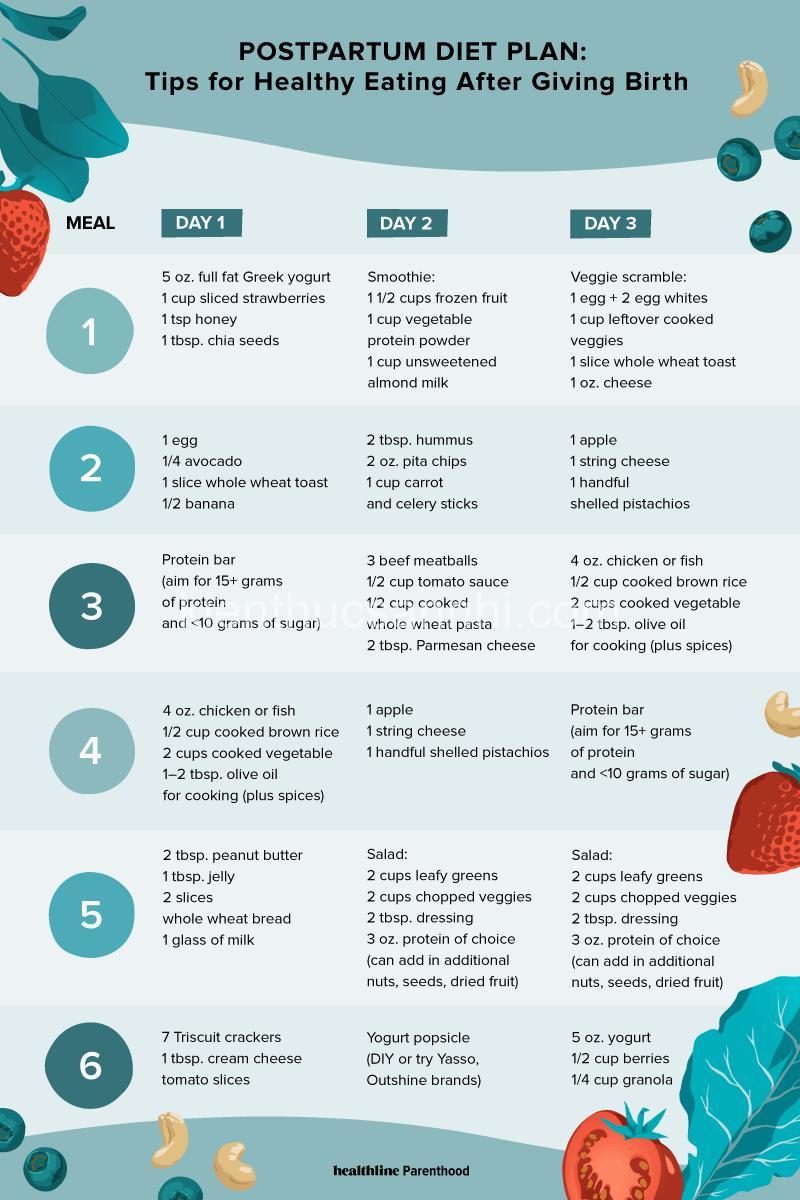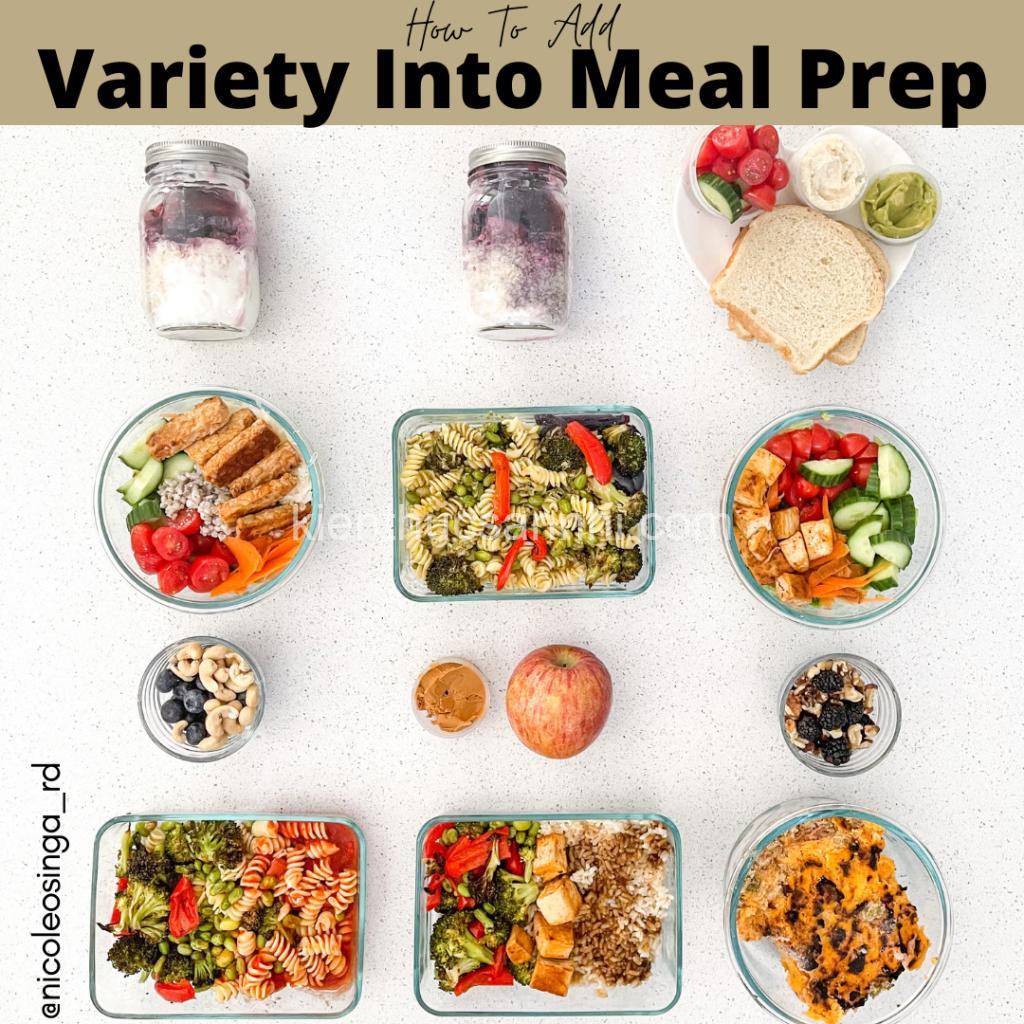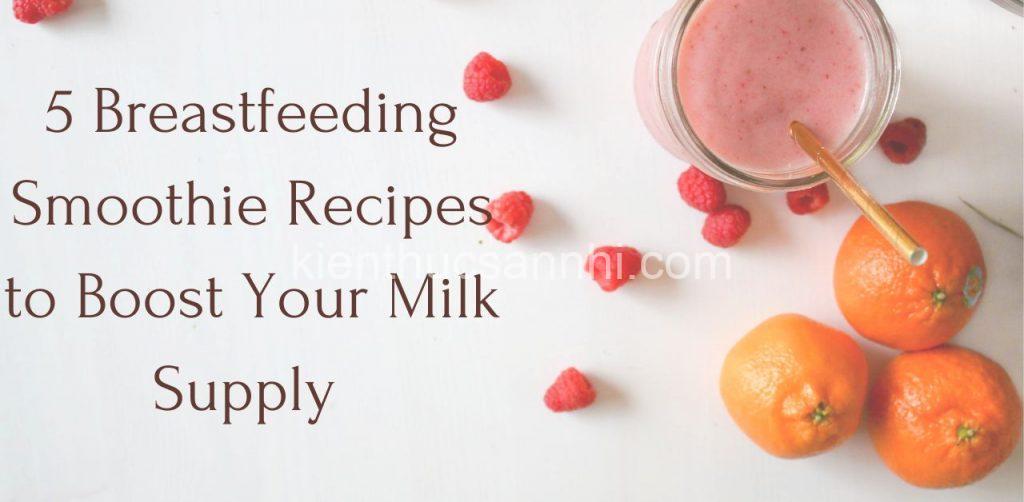
Postpartum Diet: Why Meal Variety Is Crucial for Recovery. In today’s article, kienthucsannhi.com will explore with you in the most detailed and complete way. See now!
Why Meal Variety Matters for Postpartum Recovery
You’ve just brought a new life into the world, and your body is working hard to recover and nourish your little one. This is a time of heightened energy needs, especially if you’re breastfeeding. A varied diet is critical for providing your body with the essential nutrients it requires.
Think about it like this: Imagine your body is a car. To run smoothly, it needs a variety of fuel sources like gasoline, oil, and coolant. Similarly, your body needs a mix of nutrients like iron, calcium, vitamin D, and protein to function at its best.
Iron is crucial for blood production, which is essential for delivering oxygen to your tissues and supporting energy levels. Calcium is vital for building strong bones, teeth, and supporting breastfeeding. Vitamin D plays a role in calcium absorption and bone health. Protein is necessary for repairing tissues, building muscle, and producing breast milk.
A balanced diet ensures you get a wide range of these essential nutrients. But more than that, it’s crucial for preventing nutritional deficiencies. Iron deficiency can lead to fatigue and anemia, while calcium deficiency can increase the risk of osteoporosis later in life. Vitamin D deficiency can also contribute to fatigue and bone pain.
Here’s the bottom line: Meal variety during the postpartum period isn’t just about eating different things. It’s about ensuring your body has the building blocks it needs to recover, breastfeed, and thrive.

The Benefits of a Diverse Postpartum Diet
Imagine your plate as a colorful garden. You want to make sure you have a variety of fruits, vegetables, grains, protein sources, and dairy products.
-
Nutrient Diversity: Just like a garden needs a mix of flowers and vegetables, your body needs a variety of food groups to get a full spectrum of vitamins, minerals, and phytonutrients. Each food group offers unique benefits. Fruits and vegetables are rich in antioxidants, grains provide fiber and complex carbohydrates, protein sources support muscle growth and repair, and dairy provides calcium and other essential nutrients.
-
Preventing Boredom and Cravings: Variety keeps your meals interesting and prevents the dreaded “I’m bored of this food” feeling. When you eat a wide range of foods, you’re less likely to crave unhealthy snacks and sugary treats.
-
Improved Digestion and Gut Health: Fiber is essential for healthy digestion, and different food groups offer different types of fiber. Fruits, vegetables, and grains are great sources. A diverse diet also introduces a variety of prebiotics, which help to promote the growth of beneficial bacteria in your gut. A healthy gut is crucial for overall health and immunity.
-
Enhanced Mood and Energy Levels: A balanced diet helps regulate blood sugar levels, preventing energy crashes and mood swings. Eating a variety of foods also keeps your body energized and helps you feel more alert and focused.
Practical Tips for Maintaining Meal Variety Postpartum
The idea of cooking elaborate meals when you’re sleep-deprived and juggling a newborn might seem daunting, but it doesn’t have to be! Here are some simple tips to help you maintain meal variety:
- Planning Ahead: Dedicate some time each week to meal planning and grocery shopping. This will help you make sure you have a variety of ingredients on hand. Consider creating a weekly meal plan that includes a mix of quick and easy recipes, as well as some more elaborate dishes you can prepare in advance.
- Incorporating All Food Groups: Aim for a mix of fruits, vegetables, grains, protein sources, and dairy in each meal and snack. Don’t be afraid to get creative! Think about adding berries to your yogurt, incorporating roasted vegetables into your protein dishes, or making a colorful salad with different types of leafy greens.
- Experimenting with Flavors and Cuisines: Try new recipes and cuisines! You can find endless inspiration online and in cookbooks. Don’t be afraid to step outside your comfort zone. You might discover new favorite dishes!
- Utilizing Resources and Support: There are many resources available to help you with meal planning and cooking. Look for online recipes, meal delivery services, and postpartum support groups that offer cooking tips and recipes tailored to new mothers.
Addressing Common Challenges
The postpartum period is a time of adjustment, and it’s natural to face challenges. Here are some common hurdles you might encounter related to meal variety:
- Limited Time and Energy: It’s understandable that you might feel exhausted and overwhelmed, especially in the early days. Try to make meal preparation as easy as possible by using quick and easy recipes, preparing meals in advance, and seeking help from family or friends.
- Postpartum Fatigue and Mood Swings: Fatigue and mood swings are common during the postpartum period. It’s essential to prioritize nutritious snacks that provide quick energy boosts. Don’t be afraid to ask for help from your partner, family, or friends if you’re feeling overwhelmed.
- Budget Constraints: Meal planning and grocery shopping can be expensive. Try to save money by utilizing seasonal produce, buying in bulk, and cooking at home. Look for recipes that use affordable ingredients and consider swapping out more expensive proteins like steak or fish for budget-friendly options like beans, lentils, or chicken.
- Food Aversions and Intolerances: Hormonal changes and the physical demands of pregnancy and postpartum can sometimes trigger food aversions or intolerances. If you notice any changes in your appetite or digestion, talk to your doctor or a registered dietitian. They can help you identify any potential issues and develop a personalized nutrition plan.
Seeking Professional Guidance
While this guide offers valuable information, remember that everyone’s needs are different. If you have any concerns about your postpartum diet or are struggling to maintain a varied and healthy eating plan, it’s always a good idea to consult with a registered dietitian or healthcare professional. They can provide personalized advice and guidance based on your individual needs and preferences.
The Takeaway
In a nutshell, maintaining a balanced and varied diet during the postpartum period is not just about eating different things; it’s about fueling your recovery, supporting breastfeeding, and ensuring your overall well-being. Prioritize your nutritional needs and seek support from healthcare professionals or reliable sources for guidance on making healthy and fulfilling food choices.
Frequently Asked Questions About Meal Variety Postpartum
What are some common nutritional deficiencies that new mothers experience?
Iron deficiency, calcium deficiency, vitamin D deficiency, and protein deficiency are some of the most common nutritional deficiencies experienced by postpartum mothers. These deficiencies can impact energy levels, bone health, breastfeeding, and overall well-being.
How can I manage food aversions or intolerances during the postpartum period?
If you experience food aversions or intolerances, it’s important to talk to your doctor or a registered dietitian. They can help you identify the underlying cause and suggest strategies for managing these issues. This may involve avoiding certain foods, finding alternative sources of nutrients, or making adjustments to your diet.
What are some budget-friendly ways to maintain meal variety?
Budget-friendly options include:
- Meal planning and grocery shopping: Plan your meals in advance and make a list of ingredients to avoid impulse purchases.
- Utilizing seasonal produce: Seasonal fruits and vegetables are often more affordable and flavorful.
- Buying in bulk: Bulk buying can save money on staples like grains, beans, and lentils.
- Cooking at home: Preparing meals at home is typically more affordable than eating out.
- Swapping out expensive proteins: Consider budget-friendly protein sources like beans, lentils, or chicken instead of more expensive options like steak or fish.
What are some resources for postpartum nutrition?
There are many resources available to help you with postpartum nutrition, including:
- Websites: Look for reputable websites like the National Institutes of Health or the American Academy of Pediatrics for evidence-based information about postpartum nutrition.
- Books: There are many books available on postpartum nutrition, covering topics like breastfeeding, weight management, and healthy eating habits.
- Support groups: Postpartum support groups can provide a forum for sharing information and tips on managing your postpartum diet.
- Registered dietitians: A registered dietitian can provide personalized nutrition advice and guidance tailored to your individual needs.
Conclusion
A varied and balanced diet is a gift you can give yourself during the postpartum period. It’s a powerful tool for supporting your recovery, nurturing your baby, and ensuring your long-term health. Remember, you’re not alone on this journey. Reach out to your doctor, a registered dietitian, or a postpartum support group for guidance and support. Don’t forget to share your experiences and tips with other new moms.
To learn more about nutrition, health, and other topics related to raising healthy and happy animals, visit kienthucsannhi.com https://kienthucsannhi.com. Let’s connect and share our knowledge!





